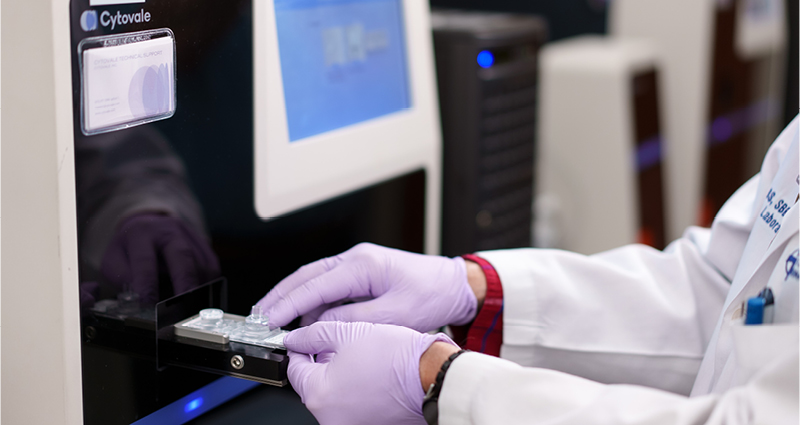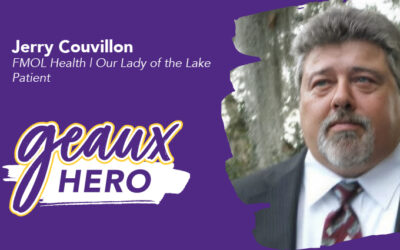Sepsis is a life-threatening condition that can escalate rapidly, making early detection and swift treatment essential. Thanks to the groundbreaking IntelliSep diagnostic tool developed at Our Lady of the Lake Health and implemented across our health system, Sepsis care is being revolutionized- and saving lives.
“Through our Learning Health Sepsis Initiative and the first-ever worldwide implementation of IntelliSep, we’ve achieved remarkable improvements in patient outcomes,” says Christopher Thomas, MD, vice president, chief quality officer for Franciscan Missionaries of Our Lady Health System.
Faster and More Accurate Care, Better Outcomes
The results of this initiative speak for themselves:
- Lower mortality rates: Sepsis-related deaths dropped by 40 percent
- Shorter hospital stays: Patients spent an average of 0.76 fewer days in the hospital
- Fewer unnecessary tests: Blood culture collections decreased by 1,347 sets, saving 336 hours of nursing time
- More timely interventions: A new, nurse-driven triage screen identifies at-risk patients a median of 99 minutes earlier than electronic health record-based screening processes
- Improved antibiotic use: In the highest-risk sepsis group, timely antibiotic prescriptions increased to 99.1%, up from 94.5%
- Fewer return visits: Emergency department revisit rates after discharge dropped two and three days
How IntelliSep Works
IntelliSep divides patients into three bands:
- Band 1: Sepsis unlikely
- Band 2: Sepsis possible
- Band 3: Sepsis probable
The test was ordered for over half of patients who triggered an alert, and nearly 50% fell into Band 1, meaning they were less likely to have sepsis and could avoid unnecessary treatment.
For patients in Band 3, immediate intervention remained crucial, ensuring high-risk patients received prompt care.
Looking Ahead: Promising Data for Pediatric Care
While these incredible results focus on adult patients, efforts are underway to expand this our success to children.
“Our pediatric emergency department experts, Dr. Kristen Pontiff and Dr. Christopher Woodward, challenged all of us to match the screening success in pediatrics that we saw in adults,” Dr. Thomas says. “The early data is extremely promising positioning Our Lady of the Lake Children’s Health as a center of pediatric sepsis innovation.”
Transforming Sepsis Care for Good
Sepsis remains a dangerous, fast-moving condition, but FMOLHS is proving that faster screening, personalized diagnostics, and smarter workflows can dramatically improve outcomes.
“By combining innovation with standardized care processes, we’re not only saving lives but also improving the entire patient experience — from faster diagnosis to fewer hospital days,” Dr. Thomas says.




